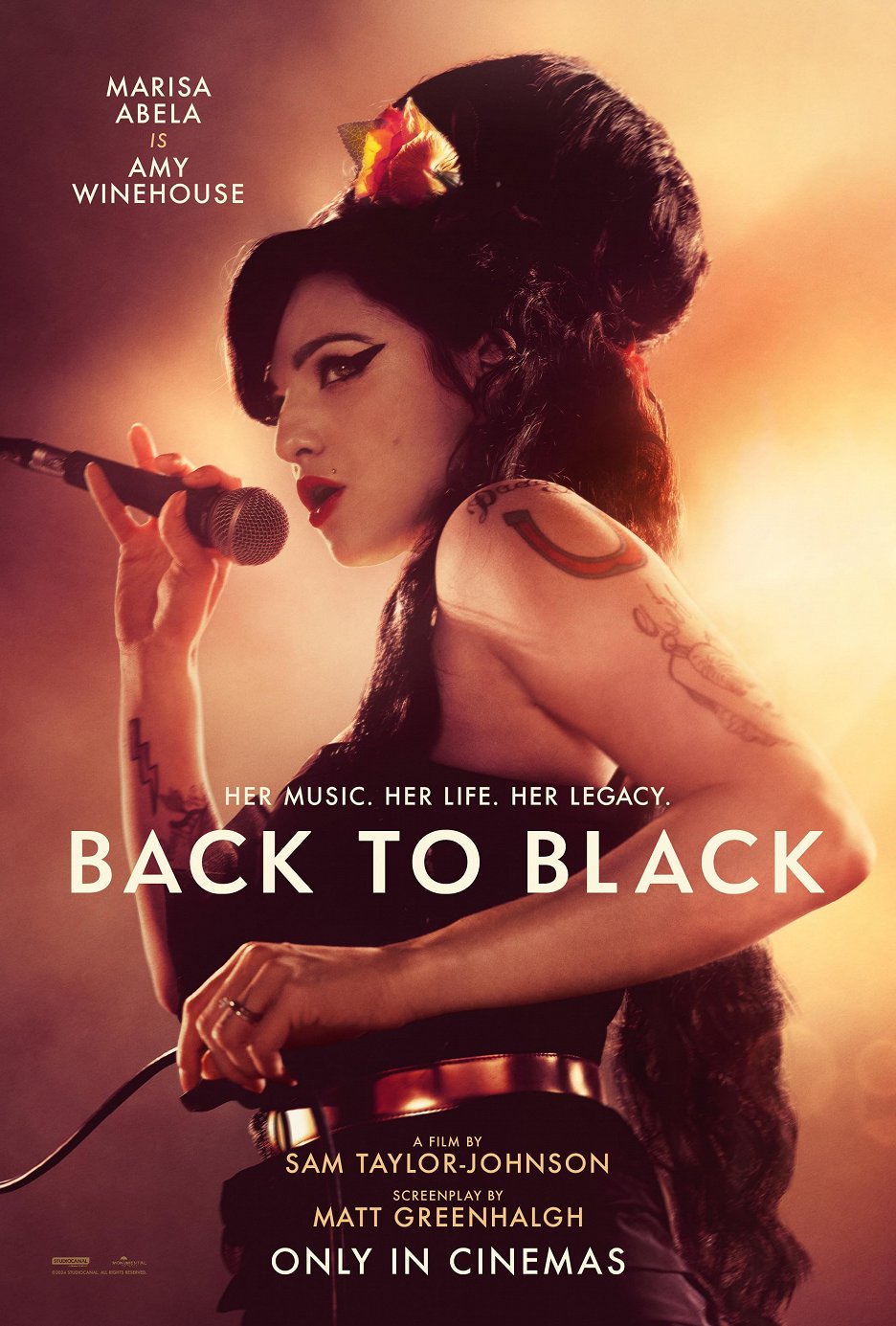Back to Black
Directed by Sam Taylor-Johnson
Screenplay by Matt Greenhalgh
Starring: Marisa Abela, Jack O’Connell, Eddie Marsan and Lesley Manville
Certificate: 15
UK Release Date: 12th April 2024
It should go without saying that Amy Winehouse is one of the greatest musicians to have come out of the UK in the 21st century, perhaps of all time, with such an astounding body of work over just two albums. It should also be noted that her personal struggles in her later years and her tragic death in 2011 have been very well documented in the press, the former having previously been brought to film by Asif Kapadia’s heartbreaking and deeply moving documentary Amy in 2015 which unearthed a bevy of unseen footage and songs. But that film came under scrutiny from Amy’s father Mitch for its less than flattering representation of him, and this subsequent biopic has been produced with the involvement of her estate. And with the intent being to honour Amy’s life and legacy, the creative talent that has been chosen are well versed in musician biopics that do just that, with director Sam Taylor-Johnson having previously detailed the formative years of John Lennon in Nowhere Boy, and screenwriter Matt Greenhalgh, who in addition also charted Ian Curtis’ struggles with epilepsy and his personal life in Control. So with this pedigree behind it, it’s such a shame that any potential for an emotional tribute that bring out the tears unfortunately dries on its own.

Back to Black chronicles the life of Amy Winehouse (Abela) over the course of the 2000s, charting her upbringing in London, the early days of her career, the conception of her genre defining second and final album Back to Black, along with her relationships with her father Mitch (Marsan), nan Cynthia (Manville) and eventual ex-husband Blake Fielder-Civil (O’Connell), the latter of which became the centre of the British press’s obsessions.

The closest comparison that can be made is with this year’s earlier Bob Marley: One Love, not just on a surface level of both films being period biopics of influential musicians with troubled personal lives who ultimately died too soon, but also in how like the former, Back to Black is compromised by its adherence to the structure these narratives rely on. For most of the film’s 2 hour runtime it feels akin to a box-ticking checklist as it charts each milestone in Winehouse’s life while also exploring her addictions to alcohol and drugs, and the format ends up devaluing her life as it ultimately doesn’t have much to say about Amy herself and the world in which she inhabited in the landscape of UK culture in the 2000s, where so much of our entertainment and journalism revolved around belittling and making fun of others. However, what undeniably shines through in Greenhalgh’s screenplay is Winehouse’s personality, as her charm, sense of humour and affection for her family are all on display and the film is at its best when exploring those relationships, particularly when it comes to the toxic yet also addictive co-dependency in her romance with Blake, though the involvement of her family is evident in how Mitch is made out as a far more saintly figure than in Amy. But as a whole, much of the film’s thematic material feels lost in the shadow of Kapadia’s documentary as there’s very little ground that’s covered that wasn’t done in a far more frank manner by Amy almost nine years ago.

Despite the disappointingly cliché script, the central performance of Marisa Abela of Industry and Barbie as Winehouse does do her justice. Abela embodies every single facet of her persona with such an emotional vulnerability and honesty and disappears into the transformative role, not just visually with each of Winehouse’s tattoos marking the passage of time, but also in her electric stage presence when performing, especially in a recreation of her 2008 Glastonbury performance. Though her vocals are not a one-to-one exact recreation, she also proves herself as a phenomenal singer in her own right. The supporting cast are also putting in strong work, from Jack O’Connell bringing a mixture of rough-edged charm and volatility to his portrayal of Blake Fielder-Civil, Eddie Marsan as the doting but also fiercely protective Mitch, and Lesley Manville as Amy’s nan Cynthia, who despite her limited screentime gives a nurturing and emotionally affecting performance. As for the film’s production, though Sam Taylor-Johnson’s direction creates a strong colour contrast between the muted greys of Winehouse’s North London home life and the vibrant reds and purples that characterise her stage spaces, while also feeling sensitive and not overshadowing her cast, there’s a flatness to the cinematography that results in the film lacking a cinematic quality. Winehouse’s discography is also handled in an odd manner, as while her signature hits from Back to Black are all present, they’re used sporadically, while her tracks from Frank are largely sidelined, and the score from Nick Cave and Warren Ellis is often intrusive. Back to Black certainly has strong performances and a warm portrayal of its subject, but its adherence to biopic structure and inability to delve deep into the toxic environment that was fostered by the media and her father’s treatment of her is disappointing given that her life has already been captured on film in a far more all-encompassing light, and considering the legacy that Amy Winehouse has left behind, she deserved so much better than this.

Back to Black belongs to StudioCanal and Focus Features. All images featured in this review are in accordance with Fair Use.
